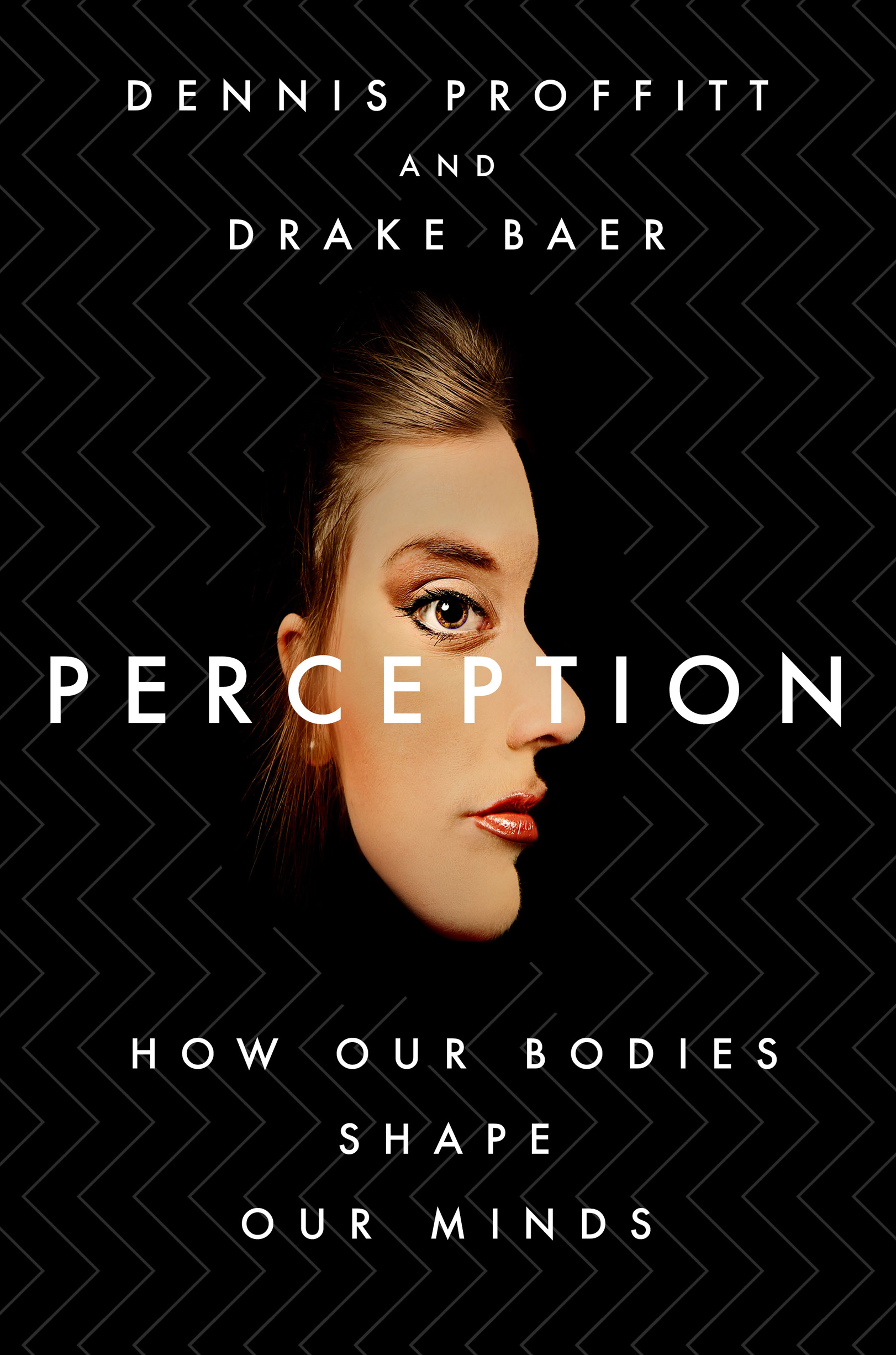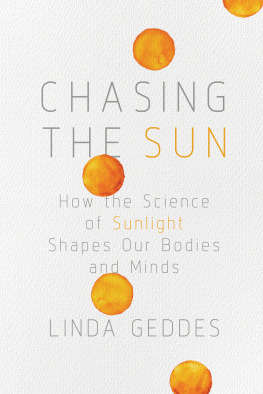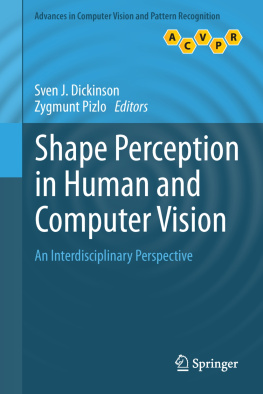Dennis Proffitt - Perception ; How Our Bodies Shape Our minds
Here you can read online Dennis Proffitt - Perception ; How Our Bodies Shape Our minds full text of the book (entire story) in english for free. Download pdf and epub, get meaning, cover and reviews about this ebook. year: 2020, publisher: St. Martins Publishing Group, genre: Romance novel. Description of the work, (preface) as well as reviews are available. Best literature library LitArk.com created for fans of good reading and offers a wide selection of genres:
Romance novel
Science fiction
Adventure
Detective
Science
History
Home and family
Prose
Art
Politics
Computer
Non-fiction
Religion
Business
Children
Humor
Choose a favorite category and find really read worthwhile books. Enjoy immersion in the world of imagination, feel the emotions of the characters or learn something new for yourself, make an fascinating discovery.

- Book:Perception ; How Our Bodies Shape Our minds
- Author:
- Publisher:St. Martins Publishing Group
- Genre:
- Year:2020
- Rating:4 / 5
- Favourites:Add to favourites
- Your mark:
- 80
- 1
- 2
- 3
- 4
- 5
Perception ; How Our Bodies Shape Our minds: summary, description and annotation
We offer to read an annotation, description, summary or preface (depends on what the author of the book "Perception ; How Our Bodies Shape Our minds" wrote himself). If you haven't found the necessary information about the book — write in the comments, we will try to find it.
Perception ; How Our Bodies Shape Our minds — read online for free the complete book (whole text) full work
Below is the text of the book, divided by pages. System saving the place of the last page read, allows you to conveniently read the book "Perception ; How Our Bodies Shape Our minds" online for free, without having to search again every time where you left off. Put a bookmark, and you can go to the page where you finished reading at any time.
Font size:
Interval:
Bookmark:


The author and publisher have provided this e-book to you for your personal use only. You may not make this e-book publicly available in any way. Copyright infringement is against the law. If you believe the copy of this e-book you are reading infringes on the authors copyright, please notify the publisher at: us.macmillanusa.com/piracy.
For our families
Of all things the measure is man, of the things that are, that they are, and of the things that are not, that they are not.
Protagoras of Abdera, 490420 BCE
To see the organism in nature, the nervous system in the organism, the brain in the nervous system, the cortex in the brain is the answer to the problems which haunt philosophy.
John Dewey, Experience and Nature, 1925
IF YOUVE ENJOYED THE ENDURING PLEASURES of a romantic relationship, then you may have noticed that your partnerwell call them Sweetiehas a particular, appealing smell. In the air about them or the scent of their shirt, there is a compelling, individual allure. One of the pleasures of a kiss is the accompanying whiff of Sweeties aroma. It turns out that body odor is as unique as a fingerprint. No two people smell exactly alike. This is how bloodhounds can track Sweetie over terrain that has been traversed by dozens of other people. What makes Sweeties smell unique is their major histocompatibility complex (MHC), which is the large group of genes that codes for the immune system. There is enormous variability in human MHC, and everyones individual complex is unique. MHC is present in sweat as are a number of other chemicals, such as those derived from the foods you eat. In romantic relationships, the scent of Sweeties MHC carries an important message about whether they would make a suitable mate, someone to have children with.
In a study conducted by Swiss zoologist Claus Wedekind, it was found that women perceive as most pleasant and attractive the smell of men whose MHC is maximally different from their own. This is an evolutionary adaptation at work: if you mate with someone whose immune system is similar to your own, then problematic recessive traits have a higher likelihood of being expressed. Increased risk for harmful recessive trait expression is why theres a taboo against mating with near relatives, and why royal inbreeding, from the pharaohs to the Habsburgs, has led to developmental problems. Keeping the blood pure actually has unintended risks. Hence why evolution guides you the other way: the benefit of being attracted to someone with a maximally different immune systems is reproductive fitnessyoull likely have healthier children.
But notice how personally subjective this perception is: Sweeties great smell is a sign of reproductive fitness for you, as an individual, mating with Sweetie. Someone else, with a different MHC, may not find Sweeties bodily odors to be such an olfactory delight. You are also different from the bloodhound: bloodhounds might pick up on Sweeties scent, but theyre not likely to have the same emotional response that comes from catching a whiff of probable reproductive success. The realm of perceived human body odors is not an objective world of good and bad smells. Rather, you perceive a social world of scent that is as unique as your own immune system. The goodness of Sweeties smell is due to both your and Sweeties genetics. It says Lets get to know each other. We are a good match. Hence smell is a signal of, and force for, bonding, collaboration, and love. But like much of social perception, it is also a medium of, and conduit for, repulsion, otherization, or even hate. When the first Europeans arrived in Japan, their dietsheavy on animal fatsled to body odors that the Japanese found offensively rank and reminiscent of buttersuch that the Europeans earned the derogatory label bata-kusai, or butter stinkers, a slur for Westerners that remains part of the language to this day.
We develop and are immersed in a human social ecology, and consequently our perceptions are shaped by our upbringing in the cultural environment in which we were raised. We cannot help but perceive people of different skin tones as being of other races, a bias that emerges well before we learned to speak. At three months of age, infants raised in a homogeneous ethnic environment prefer to look at people of their own group rather than at other ethnicities, but the effect is less pronounced for children who grow up in more diverse social environments. By five months of age, infants prefer to look at someone who speaks their native language; older infants are quicker to accept toys from native-language speakers; and by the time children reach preschool, they prefer native speakers of their own language as friends.
These developmental biases contribute to the other race effect, a widely studied pattern in which people have a tougher time recalling or recognizing the faces of people who belong to other ethnic groups, as if the social categories put some kind of opaque filter on perception and memory. Our social perception appears to narrow. One experiment with British babies found that Caucasian three-month-olds were equally able to discriminate between African, Caucasian, Middle Eastern, and Chinese faces, but by the time they reached nine months, they only discriminated between different Caucasian faces. Hence the oft-repeated but no longer socially acceptable saying, You people all look the same. If your life experiences thus far have led to a narrowing of your social perception, then youre not going to perceive people of different social groups as richly as you would your own. Instead of seeing people of other backgrounds as individuals, we risk seeing them as only members of their social category. Hence, You people all look alike. And, as well uncover, thatdis-individuatingnot seeing a person as an individual but just as a member of a groupleads to a feeling of You people all act the same. White or black, liberal or conservative, boomer or millennial.
Mix deindividuation with stereotypes and cultural assumptions about the indelibility of race and you get racial bias, the automatic sorting of people according to whatever beliefs youve received from culture about what theyre like. Jennifer Eberhardt, a Stanford psychologist, has shown how racial stereotypes influence perceptionfor example, when white undergrads were primed by a slideshow of black faces, they more quickly recognized images of weapons and crime-related objects, compared to if they were shown images of white people. In this study, a silhouette of a knife or gun emerged from a blank background, and the college students who saw the black faces perceived the weapons faster. This is uncomfortable stuff. You can be open-minded and well educated, but youre still invariably going to experience a world biased by your personal history.
Nowhere is this bias more evident than in the political scene of the early 21st century, as polarization became the norm across societies, and especially so in the United States. To some, a politician may be viewed as a champion of American values; whereas to others this same political figure may seem the worst sort of ignoramus. How can such divergent opinions develop among reasonable people living in the same world? The answer, we believe, is that due to differences in their personal histories, the individuals within each of these political camps may live in the same physical world of current affairs, but their subjective experiences are worlds apart. And, as well explore in detail, its not just that we live in social worlds of our own making but that all we perceive, down to the steepness of a hill or the size of a glass, depends on who we are as individuals.
Font size:
Interval:
Bookmark:
Similar books «Perception ; How Our Bodies Shape Our minds»
Look at similar books to Perception ; How Our Bodies Shape Our minds. We have selected literature similar in name and meaning in the hope of providing readers with more options to find new, interesting, not yet read works.
Discussion, reviews of the book Perception ; How Our Bodies Shape Our minds and just readers' own opinions. Leave your comments, write what you think about the work, its meaning or the main characters. Specify what exactly you liked and what you didn't like, and why you think so.





